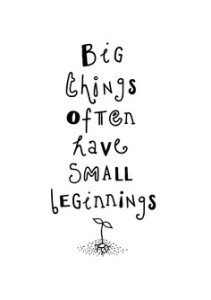You’re researching ideas, sending pitches and following up with editors and it’s led to a respectable roster of assignments. It’s not enough to research/pitch/follow up/repeat. A successful freelance career requires creative strategies to connect with editors, develop ideas that sell and become a go-to writer for lucrative gigs.
Whether you’re just starting out or have decades of experience, here are six things you can do today to be a more successful freelancer, including:
Set up a co-working date: Writing can be isolating. Working alongside another freelancer gives you an opportunity to bounce ideas off of each other and the side-by-side environment allows for instant query critiques.
I had breakfast with a writer/friend who came into town last week. We talked about work (of course) and I mentioned a pitch I was excited about but struggling to sell. She mentioned a market that is perfect for the idea – and one I never thought to pitch. I sent the idea off later that afternoon (no response yet but I’m hopeful). We found the water cooler conversation so valuable that we’ve set up a regular Skype date.
Update your LinkedIn profile: Adding links to recently published articles and awards along with an up-to-date list of credentials and areas of expertise will keep you top-of-mind when editors need a writer with specific skills. Be sure to ask editors and colleagues for endorsements to enhance your portfolio.
Write a thank you note: Thanking an editor for a referral or letting a source know you appreciate their time can help solidify important relationships. You’ll be remembered for your thoughtfulness and set yourself apart from other writers.
When an editor at a national magazine recommended me to one of her colleagues, I immediately sent a hand-written thank you note to let her know how much I appreciated the referral. She responded via email to say, “Thanks for the thanks! People don’t usually think to say that.” I don’t think it’s a coincidence that she has referred me to other editors who assign articles for the magazine and website.
Follow your favorite magazines on Twitter: Use social media to identify what magazines – and their editors – are interested in. Many successful freelancers have used information from a 140-character missive to land an assignment.
Full disclosure: I don’t tweet (I know, I know) but I have talked to several writers who swear their 140-character missives have led to relationships with editors and lucrative assignments. As my mom always said, “Do as I say, not as I do.” Go on, tweet something.
Ask for a raise: You wouldn’t work in a cubicle for years without a raise, right? Yet many freelancers never ask editors to increase their rates. Approaching your most loyal clients for a bump in your rates can lead to significant payoff.
After I received my third assignment from an editor at a national magazine, I sent a note that said said: “I’m excited we’ll be working together on this article. Since we’ve worked together in the past and you know I can be counted on to meet my deadlines and turn in clean copy, I hoped we could agree to a higher rate for this article.” She bumped the fee by 50 cents per word, increasing my fee by $750 – all because I asked.
Create a reprint catalog: Go through previously published articles (make sure you still own the rights) and create a list of reprints available in various categories: travel, health, parenting, personal finance. Email the list to regional magazines that purchase reprints. Selling articles that are already written is a simple way to increase your income.
Writers: What creative strategies have you used to increase your success?

Leave A Comment